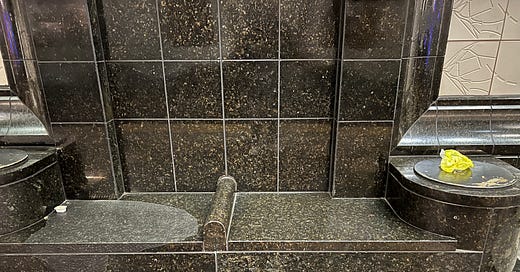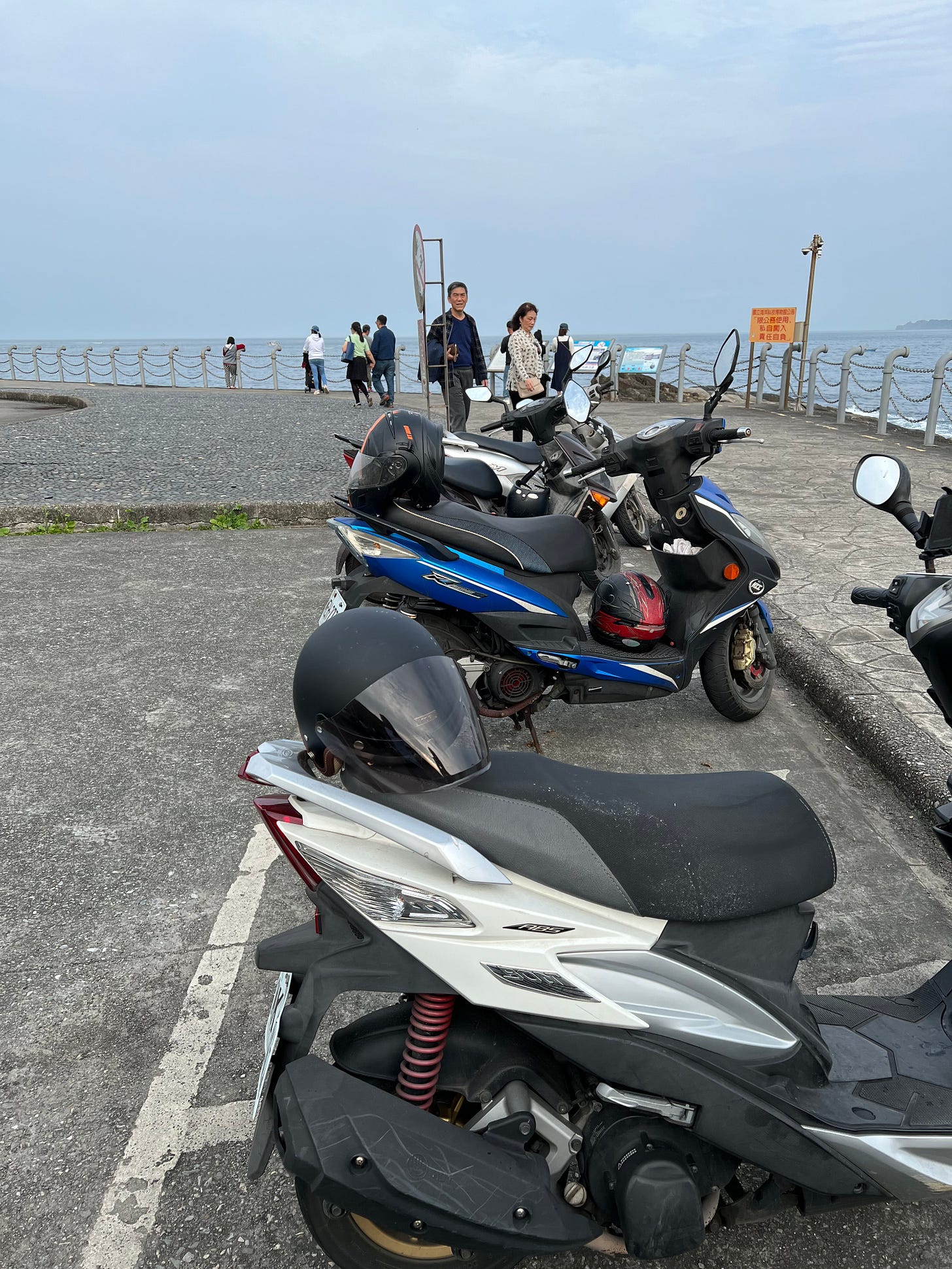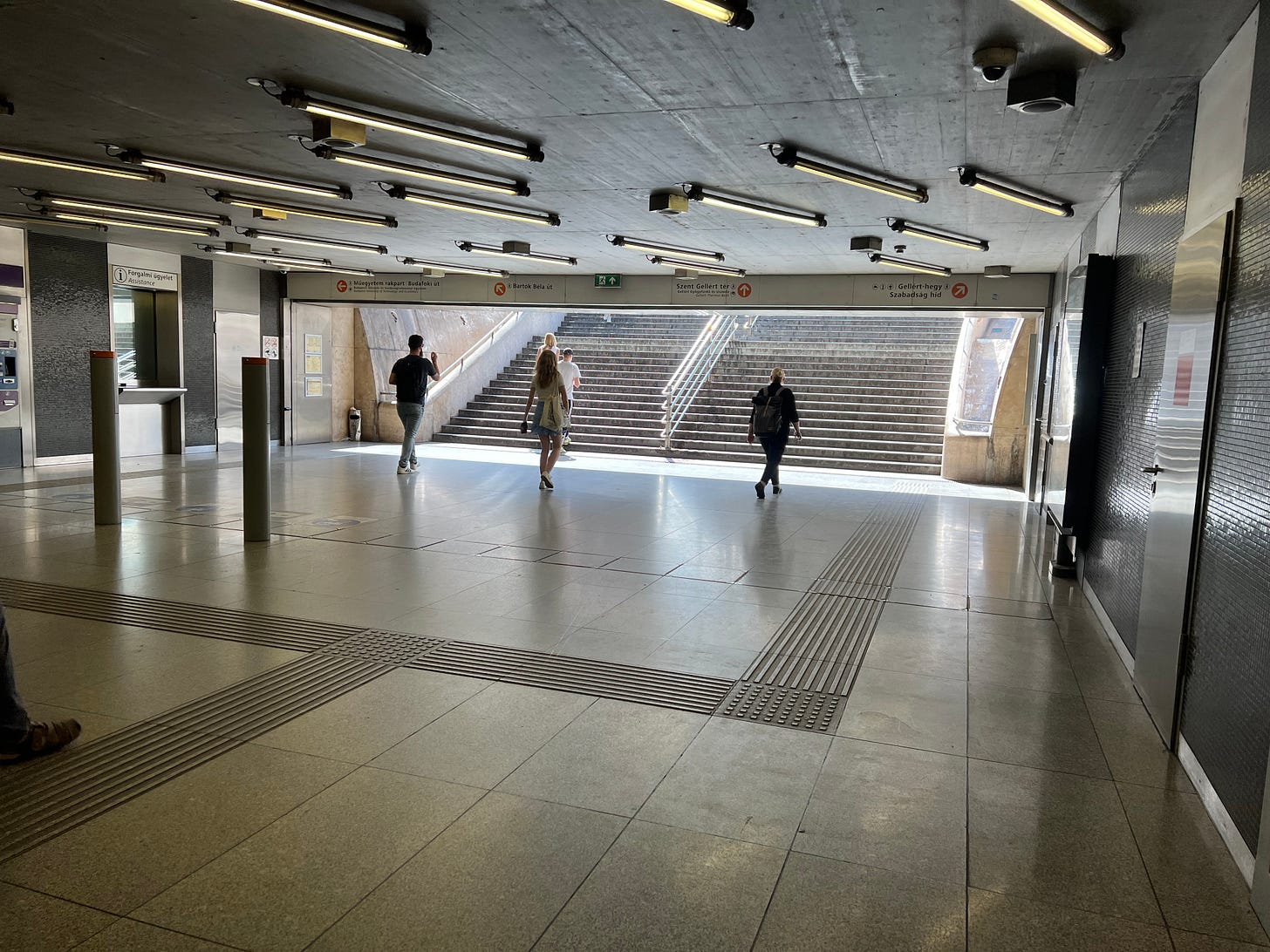How people behave in public spaces reveals much about their society
A few anecdotes from my travels…
How people behave in public spaces reveals much about their society. A few anecdotes from my travels…
Seattle
I was just in downtown Seattle, where I frequently took public transit. After walking down the stairs to catch a train, my knee hurt, so I wanted to sit on one of the built-in seats. One person occupied each seat, but there was clearly enough room for two people to sit comfortably. I went to sit next to a woman on one of the seats when she raised her voice and exclaimed, “No!” Surprised, I shrugged and went to sit next to a man in the adjacent seat. He stood up and walked away. I said, “I have a bad knee and want to sit down. I don’t mean to kick you out of your seat.” He ignored me.
I was somewhat puzzled by this, as the seats on the subway allow far less room between passengers than the built-in seats in the station. Curious, on my return trip that day, I tried to figure out what the local custom was for how many people share a space. Was I misjudging the space, or was there an unspoken rule of one person per seat? I found that either no one or only one person sat at a time. Wanting to test the idea of whether the culture determined if it was one or two people per space, I attempted to sit down next to a man on one of the seats. He stared at me as I sat down and made an uncomfortable noise, but he did not vacate his seat. Not willing to test my luck, or have people think I’m a predatory maniac by attempting to sit next to them, I just observed. I never saw two people seated side by side.
I’m unsure what to make of this, or even if anything can or should be inferred. I can’t help but think that this is not an isolated phenomenon. That is, it’s not just that two people don’t sit next to each other in a space where there is ample room. Rather, two people do not sit next to each other because it’s a lower-trust society, and this lower trust manifests in how people behave in the commons. Perhaps this is just a mundane and even obvious observation. Culture determines more than we may be conscious of, and to an outsider who doesn’t understand the culture, making sense of behavior can be baffling.
Portland
Years ago, when I was living in Portland, my daughter forgot her lunch and phoned me to bring it to her. I hurried out of the house and went to her school. While there, I had to go to the bathroom, and I went in search of a men’s/boys’ room. They were all locked. All of them. In a school of about 700 students, half of them boys, the lack of available restrooms for 350 students was mystifying. I went to the main office and asked why all the restrooms were locked, or if there was something I wasn’t understanding. The receptionist told me that vandalism was so severe they closed all but one of the restrooms, and you needed to sign for a key for the only open toilet, which was single-stall. I signed and turned to face a massive queue of around 70 students.
It sounds weird, but ever since then when I go around the world and give lectures in high schools, I always take a pic of the boys’ room and send it to my kids, usually with a caption like, “High trust society: This is how civilized people use the restroom.” Indeed, they have actual glass mirrors, nobody has committed Social Justice (that is, defecated) on the floor, there’s almost never graffiti, etc.
Bonus Portland Story. A few years ago, I was walking down the street with my son. We came across a man masturbating on someone’s front lawn. He was just lying on the lawn and pleasuring himself with abandon. I shot him a disapproving look, and in a friendly manner, he waved at me. How people treat the commons indeed!
Taiwan
When I was in Taipei, I was struck by the cleanliness of the commons: Parks, public restrooms, town squares, streets, etc. My first day in Taiwan, I experienced culture shock as my team and I roamed around the city looking for trash. Literally. We were trying to find trash on the streets. I finally found what looked like a used napkin, and we huddled around it as we talked about the West’s social decay. All of Taiwan was like this—spotless. So it is in high trust societies.
Of note, in Taiwan there are almost no trash containers. The Taiwanese carry their trash around with them, and even sort waste down into different types of recycling. I simply cannot fathom Americans doing that.
Budapest
I’m often asked why I like Budapest so much. Indeed, it’s my favorite city in the world and it’s a high trust society. Here’s a key reason why I love it here: People treat the commons well. The subways, and all public transit, are clean and safe. (The seats are made of felt!) They throw their trash in the trash bins—unlike in London and Paris where entire sections of the city don’t have trash cans because terrorists put bombs in them. Public restrooms are safe and clean. Even most homeless people have neat, tidy spaces around their belongings. And unlike my experience in Seattle, people do sit next to each other on seats in the subway.
Fin
At 58, when I look back, I never remember such incivility, filth, and urban decay as we now have. Maybe that’s just illusory nostalgia, but one of the reasons I’m so struck by discourteous behavior, trash, vandalism, etc., is precisely because it was largely lacking when I grew up in Boston.
I think this is what Trump is tapping into with the Make America Great Again slogan. It’s not a Pollyannaish optimism about what was, but a return to basic decency, cleanliness, rule of law, high trust society, and the idea that we’re all in this together. As exemplars, the Taiwanese have figured this out. The Hungarians have figured this out. I hope we figure it out, too.







If one cannot offer another point of view in a discussion among “friends,” without being unfriended, how on earth can we rebuild trust?
Tokyo is 2.5x the size of Los Angeles and is as clean as Lake Oswego, OR. No trash cans can be found anywhere. Get on over to Japan to really blow your mind.